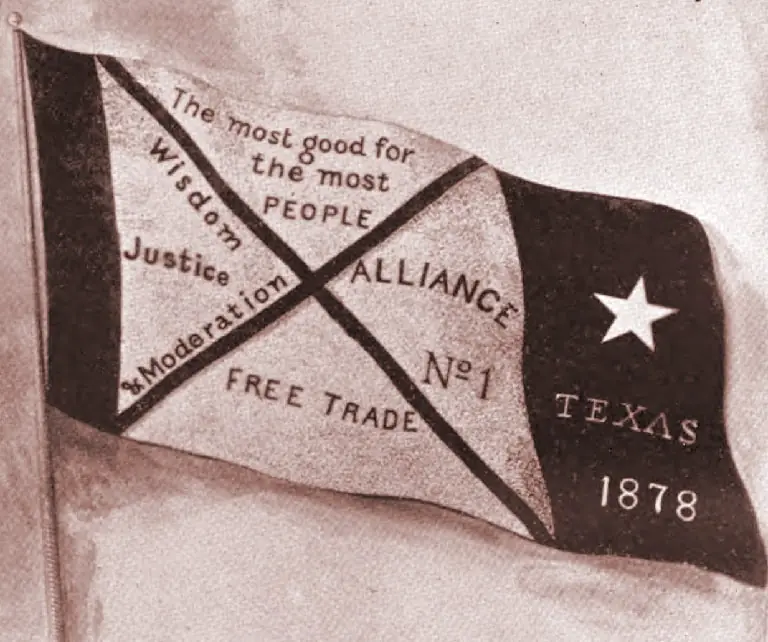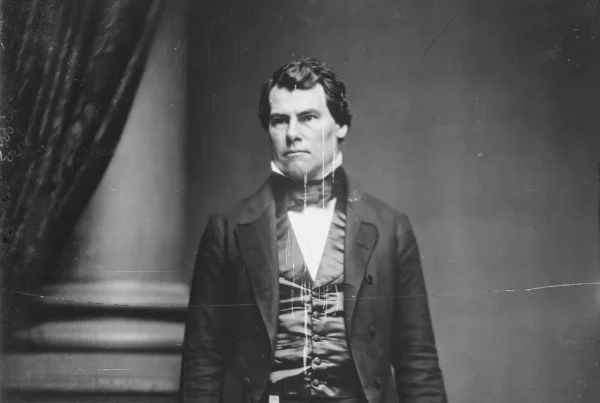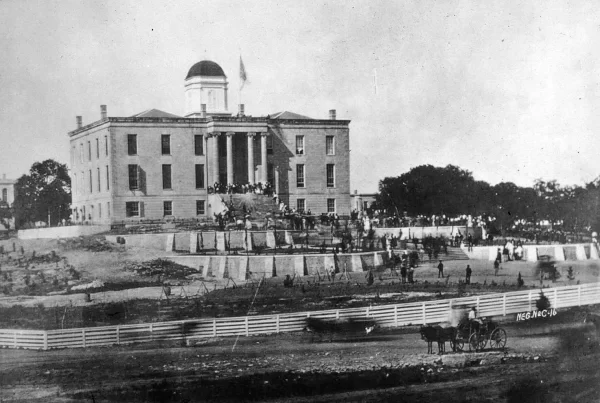The Cleburne Platform, adopted in 1886 by the Farmers’ Alliance in Cleburne, Texas, was a bold and influential document that reflected the frustrations of American farmers in the years after the Civil War. During this time, many farmers faced falling crop prices, rising debt, and harsh treatment from powerful railroads, banks, and corporations.
The Farmers’ Alliance formed in response, growing rapidly across the South and West as rural Americans organized to protect their economic interests. The Cleburne Platform was one of their first major political statements, outlining clear demands for reform.
The platform highlighted the struggles of the working class, particularly farmers, and called for changes to support small landowners and laborers. It argued that large corporations and wealthy land speculators were unfairly dominating the economy and government. To fight back, the Farmers’ Alliance called for laws to break up monopolies, prevent land speculation, and stop unfair railroad practices. They also wanted stronger rights for workers, including the right to organize labor unions and receive fair pay.
Economic reform was at the heart of the platform. The Farmers’ Alliance demanded that public lands be sold only to settlers and not to large companies. They wanted taxes to be fair and based on true land value, and they supported the idea of the federal government printing more money to help ordinary people, rather than relying on powerful banks. The platform also called for improvements in public education and the creation of a national labor bureau to study the needs of working Americans.
Although not all of their goals were achieved right away, the Cleburne Platform was a major step toward future political movements like Populism. It reflected growing dissatisfaction with inequality in America and helped inspire later reforms in banking, labor rights, and land policy. For many historians, the platform remains a powerful example of how organized citizens can demand change in the face of injustice.
The Farmers’ Alliance: The Cleburne Platform
From the Dallas Morning-News, August 8, 1886
We, the delegates of the Grand State Alliance in convention assembled at Cleburne, Texas, August, 1886, do hereby recommend and demand of our State and national governments, according as the same shall come under the jurisdiction of the one or the other, or both, such legislation as shall secure to our people freedom from the onerous and shameful abuses that the industrial classes are now suffering at the hands of arrogant capitalists and powerful corporations.
1. We demand, first, the recognition by incorporation of trade unions, co-operative stores and such other associations as may be organized by the industrial classes to improve their financial condition or promote their general welfare.
2. We demand that all public school land be sold to small bodies, not exceeding the hundreds and twenty acres to each purchaser, for actual settlers on easy terms of payment.
3. That large bodies of land held by private individuals or corporations for speculative purposes shall be assessed for taxation at such rates as they are offered to purchasers on credit of one, two or three years in bodies of one thousand and sixty acres or less.
4. We demand that measures be taken to prevent aliens from acquiring titles to land in the United States of America and to force titles already acquired by aliens to be relinquished by sale to actual settlers and citizens of the United States.
5. That we have laws to take early action upon such measures as shall effectually prevent the dealing in futures of all agricultural products, prescribing such procedure in trial as shall secure prompt conviction, and imposing such penalty as shall secure the most perfect compliance with the law.
6. That all lands forfeited by railroads or other corporations immediately revert to the government and be declared open for purchase by actual settlers on the same terms as other public or school lands.
7. We demand that all fences be removed, by force if necessary, from public or school lands unlawfully fenced by cattle companies, syndicates or any other form or name of monopoly.
8. We demand that the statute of the State of Texas be rightfully enforced by the Attorney General of the State to compel corporations to pay the taxes due the State and the county.
9. That railroad property shall be assessed to the full nominal value of the stock on which the railroad seeks to declare dividends.
10. We demand the rapid extinguishment of the public debt of the United States by operating the mints to their fullest capacity in coining silver and gold, and the tendering the same without discrimination to the public creditors of the nation according to contract.
11. We demand the substitution of legal tender treasury notes for the issues of national banks; that the Congress of the United States shall regulate the amount of such issue by giving to the country a per capita circulation that shall increase as the population and business interest of the country expand.
12. We demand the establishment of a national bureau of labor statistics, that we may arrive at a correct knowledge of the moral, intellectual, and financial condition of the laboring masses of our citizens, and further, that the commissioner of this bureau be a Cabinet officer of the United States government.
13. We demand the enactment of laws to compel corporations to pay their employees according to contract in lawful money for their services, and the giving to mechanics and laborers a first lien upon the products of their labor to the extent of their full wages.
14. We demand the passage of an interstate commercial law that shall secure the same rates of freight to all persons for the same class of merchandise, according to the distance of haul, without regard to amount of shipment; to prevent the granting of rebates; to prevent pooling freights to shut off competition, and to secure to the people the benefits of all railroad transportation at reasonable cost.
15. We demand that all convicts be confined in prison walls, and the contract system abolished.
16. We recommend a call for a national conference, to which all labor organizations shall be invited to send representative men to discuss such measures as may be of interest to the laboring classes.
This article is part of Texapedia’s curated primary source collection, which makes accessible both famous and forgotten historical records. Each source is presented with historical context and manuscript information. This collection is freely available for classroom use, research, and general public interest.



